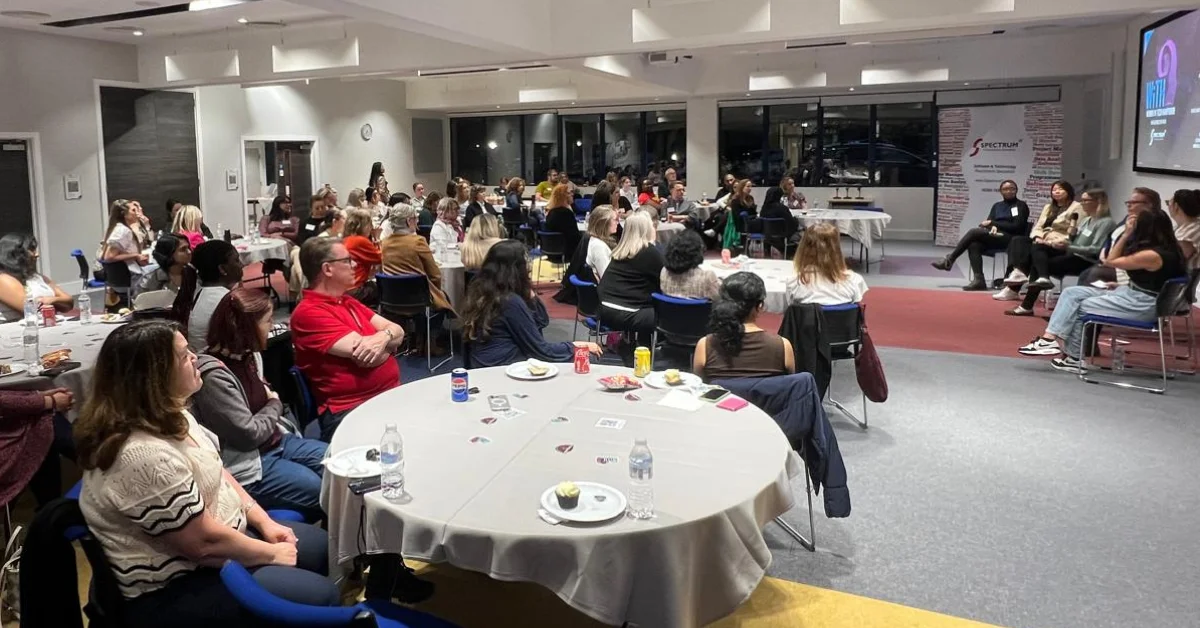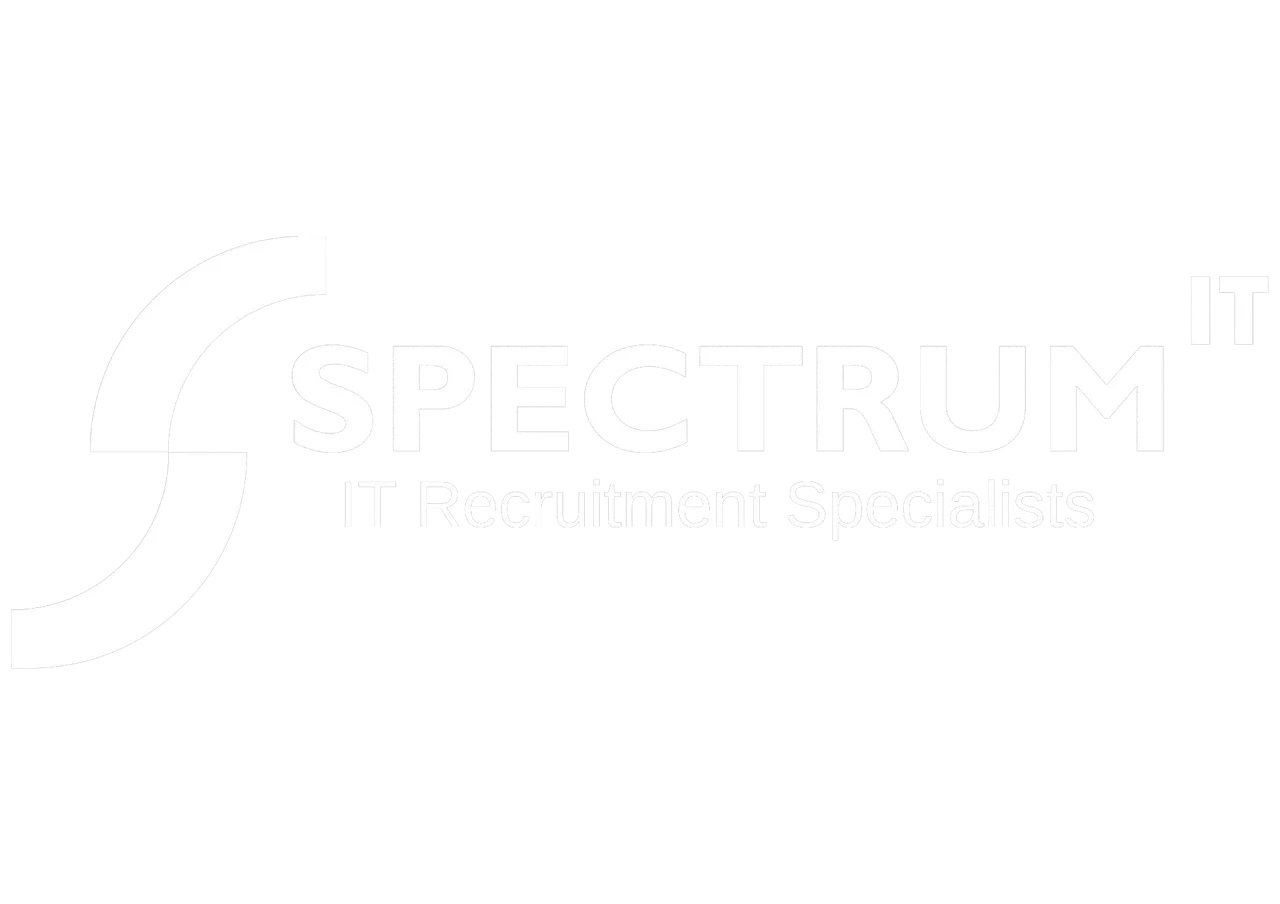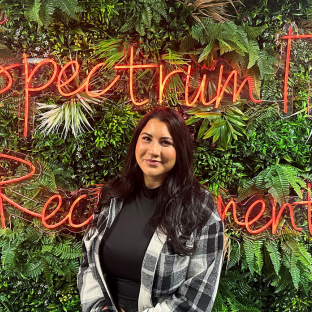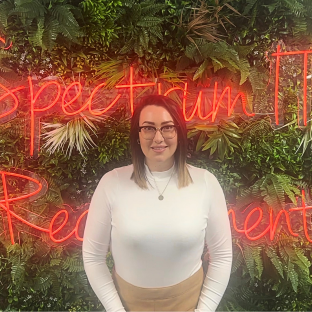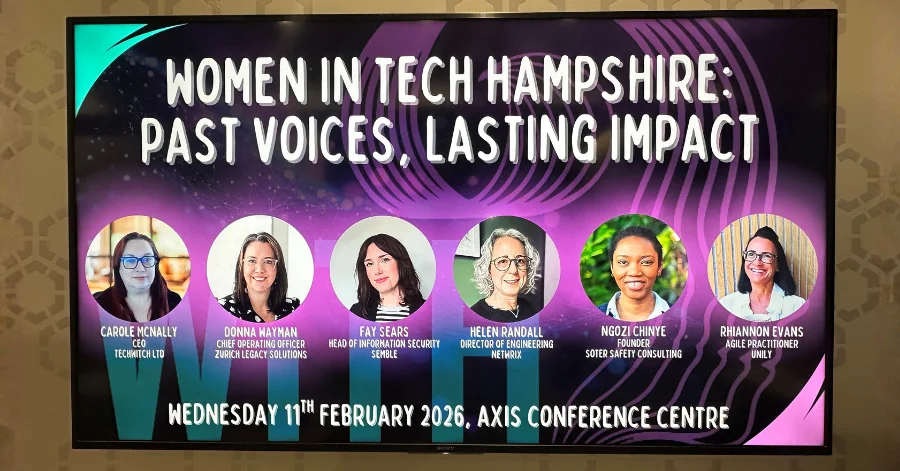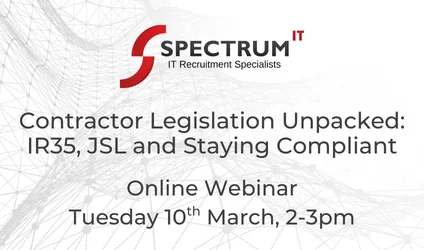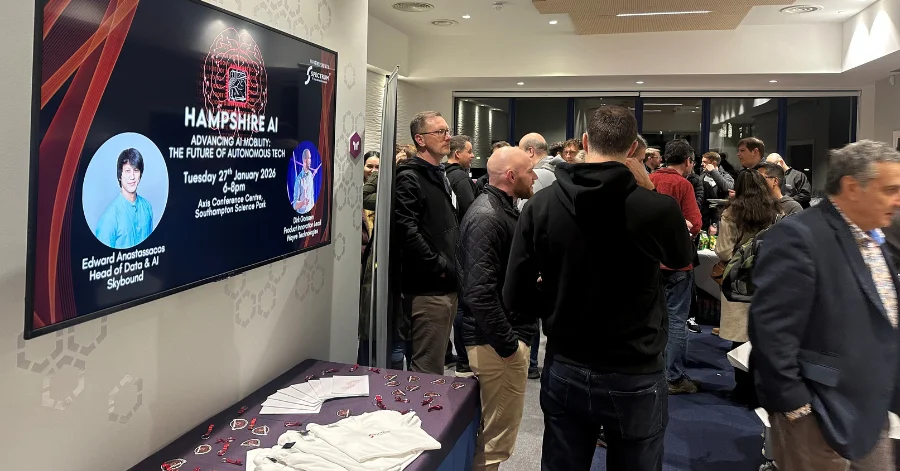Women in Tech Hampshire - The Female Founders' Experience
20 Oct, 202512 minutes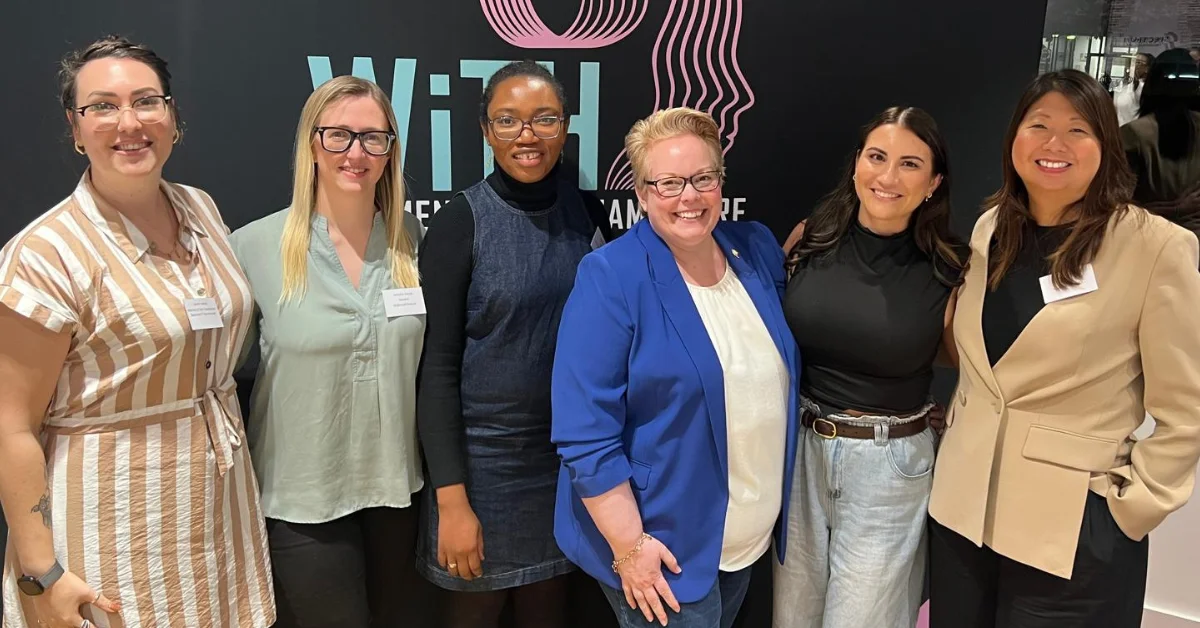
How to thrive as a female tech founder
It was great to welcome everyone back to our Women in Tech Hampshire (WiTH) networking events after a summer break. And what a way to start! We had just over 80 people in attendance for our October meeting, focused on the experience of female founders. This was made up of both returning and new faces alike, with a mixture of men and women, including many start-ups and founders.
Our network is going from strength to strength, as reflected in our recent award win at the SheCanCode PowerUp Awards for Best Diversity Network. Co-founder of WiTH Lauren James was unable to attend the formal awards ceremony along with co-founder Amy Lee and the Spectrum IT team, so we used the networking meet-up as a surprise opportunity to present Lauren with her own award!
The night was both empowering and inspiring, as we welcomed four incredible female founders to our panel, sharing their stories on starting a business in the tech space and the challenges they’ve faced along the way.
Becky Lodge is Founder and Director of Desk2Educate, improving accessibility to world-class entrepreneurship education for minorities and under-represented founders worldwide. Gemma Alcock is Owner, Founder and CEO of SkyBound Rescuer, which is shaping the future of using drones for lifesaving and emergency response. Ngozi Chinye is Founder and Director of Soter Safety Consulting and Soter Software, offering safety consultancy services and cutting-edge tools to manage risk in business. Vivienne Hsu is CEO and Partner of Anabasis Partners, an international marketing and communications advisory firm.
We didn’t have enough time on the night to get through everything we wanted to know, so each of our speakers has also provided some additional insight for this write-up to continue the conversation and inspire more women to take the step into founding their dream business. 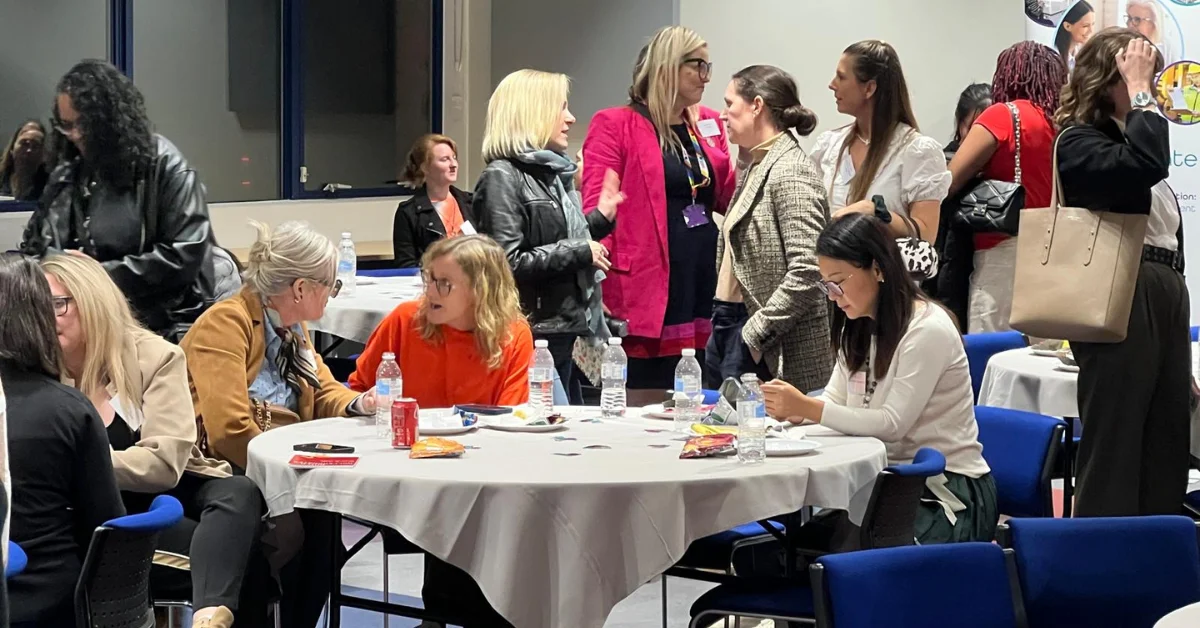
Challenges in the tech space
Each of our speakers is a successful female founder in the tech space, but they have faced challenges along the way. They all shared their own stories and obstacles, with many of their experiences striking a chord with those in the audience.
Ngozi recalls often being the only woman in the room before owning her own business – something that many can identify with. She also told a story about being asked not to sit at the front of a room, as that was where the speaker would be sitting – not realising that Ngozi was in fact the person delivering the presentation. Becky also shared that in her early career in sales, all the teams were predominately men and noted that it can be a “tough fight for women in tech”.
Gemma talked a little about why we have fewer women in tech, particularly in higher-level roles, saying that when it comes to recruitment, some people may have a problem with female leadership even when they have the knowledge and experience. Amy agreed, commenting that one of her pet peeves is when companies opt to hire women as part of a tick-box exercise: “Are women actually being supported; are the right people being hired?”
This can make things difficult when it comes to being a female founder too, but as Vivienne points out, you need to be the example of change and use your position as a chance to educate businesses. She says there are problems with the language used around women, for example “We like it when you nag us” – not phrasing that would be used for a male leader. However, she advocates for the importance of having balanced views within a business and has worked hard to incorporate both men and women with a shared ethos.
One thing that we love about our WiTH meetups is the support that we get from male allies, and the number of men who attend to understand the challenges that women face and learn how to offer support is growing every time.
But even with amazing support from allies, women need to back themselves, says Vivienne, especially as less than 2% of funding is going to female-funded businesses. We asked the room who was a female founder and around 20% of those in attendance raised their hands.
Motivations for being a female founder
The current tech climate for women highlights the challenges still present, despite positive changes over the last few years. Becky encouraged everyone to look up The Lovelace Report by WeAreTechWomen and Oliver Wyman, released in July 2025. The report reveals some shocking statistics, including the fact that up to 60,000 women leave UK tech roles every year, costing the industry £2–3.5 billion annually; over 75% of mid-career women wait more than three years for promotion, despite being ambitious; and 90% of women say they want to move into leadership, but only 25% believe it is realistically possible under current systems.
A question from our audience asked our panel how many female founders felt they were pushed into it, due to not finding suitable job. This led to an interesting conversation around being ‘accidental founders’, with women creating the tech and projects themselves because they didn’t want to work for someone else anymore, the companies they wanted to work for didn’t exist, or they felt they couldn’t return to work after having children. Women with a drive for leadership are making their own opportunities where they don’t otherwise exist.
Ngozi, for example, says that she had her career mapped out as an employee, but becoming a parent meant that she couldn’t do the travel and overnight stays that were part of her role. Instead, she took the experience she’d built up to start a company that works better for not only herself, but for others too.
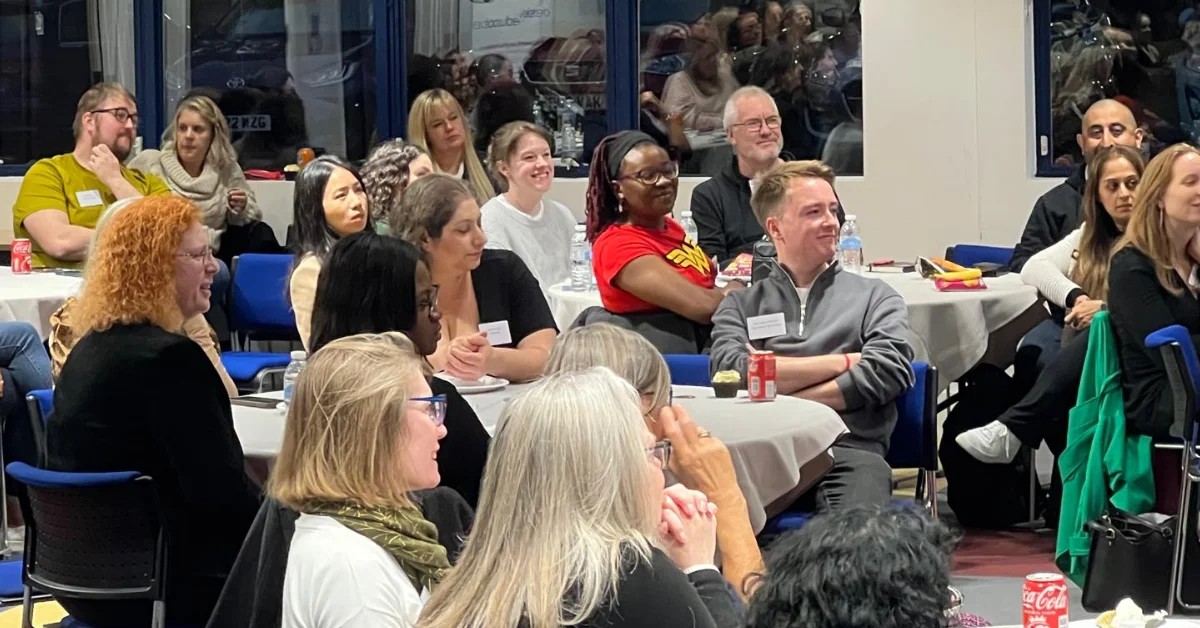
Vivienne said that the Covid pandemic created a necessity to drive innovation, such as working from home, and she was also driven by wanting to start a business to do things better: “Women see and process things differently.”
Networking is an important element when it comes to starting a business, but one audience member asked how our panel have navigated male-dominated networks throughout their journey. Becky suggests that you need to approach it with the confidence to back yourselves, and to use the opportunity to talk to others and glean information. Gemma agrees, saying that it’s good to listen to what men have to say and share experiences, while Vivienne says to “make it a win for everyone”. Other tips from the panel included being memorable, not to take things too seriously and have a sense of humour, while also not being afraid to ask for help and advice.
Not everyone finds networking easy, including Ngozi who admits that she had to force herself to do it – her first company was started through a networking event. She says to take the pressure off and talk to someone in the room as a person and not as a networker; just be yourself. She agrees that while networking can be uncomfortable, it is needed to build connections. Groups like Women in Tech Hampshire have helped to bring likeminded people together, and as it’s grown, there have been some incredible success stories. For Ngozi herself, she met someone through a previous WiTH event and they have helped her launch her second company. “WiTH is not just about helping others, but it’s spurring innovation.”
Thriving as a female founder - our panellists’ top tips
The evening was such an inspiration that we wanted to find out more about how women could thrive as founders in the industry. We asked our panellists for their additional thoughts, starting with how they saw the landscape evolving for female founders over the next 5-10 years.
For Becky, she thinks that we might see some progress in terms of funding, albeit slowly: “Economic growth is predicted as being fairly flat from the stats, but I hope that there will be some positive impacts on funding from UK Government with the Invest in Women Taskforce.” Without this essential funding, it can be hard for women to get started, but Becky suggests using the advantages of AI to help cut costs and build a business in the early stages. Ngozi agrees: “It is getting ‘easier’ to create tech-enabled companies with less money than would have been needed to build on an idea in the past. Bootstrapping the development of an MVP that can get you to revenue is now more attainable.”
“This is going to create a new set of founders who are outside the conventional tech industry to venture in and create solutions to problems that exist in a wide range of industries,” Ngozi continues. “I believe women in particular will capitalise on this, and I expect that we will see a growing number of female-founded, bootstrapped businesses emerging, getting to initial revenues and showing demonstrable traction, putting them in a much better position to raise Angel/VC funding to fund growth.”
Vivienne also touches on funding: “We will see more female-founded businesses emerging, but more importantly more female-led investors who will be running their own funds and or real partners in the larger Venture Capital/Private Equity houses. Capital investment will still be competitive, but access to capital should improve.” She also thinks that the coming years will see an increase in women at board level and in senior leadership roles.
Gemma is excited by the next generation of girls who will be entering the workforce: “These girls are growing up empowered and self-aware. They understand their worth, they’re fluent in technology, and many of them already use AI more intuitively than most adults. They won’t tolerate being held back because of their gender – and that frustration is often what sparks a founder’s journey. I believe we’ll see a surge in female-founded tech companies over the next decade. As more women build and exit successful ventures, we’ll also see a rise in female angel investors – which is a gamechanger. When women start backing women, we’ll see a self-sustaining ecosystem of female-led innovation. That’s when the movement becomes unstoppable.”
We also wanted to know what single piece of advice our panellists would share with founders just starting out on their own journey, as a final bit of inspiration.
Becky says: “It takes time. Being successful in startup is about the psychological and emotional journey more than the day to day. It’ll take 10 years and nobody’s watching in the early years. Fail and have fun; record it all and you’ll have lots to look back on.”
Vivienne advises people to “always back yourself” – a common topic from the evening – and to “hire people smarter than you and find ways to get the best out of them”.
Gemma says that you need to “embrace your crazy – that’s where the magic happens”. So many founders come against people, even their own friends and family, who think that what they want to achieve is a little bit crazy: “That’s normal. In fact, that’s a good sign. If everyone instantly understood or believed in your idea, it probably wouldn’t be truly disruptive – it would already exist. Groundbreaking ideas are radical precisely because the world isn’t ready for them yet. So, hold onto your belief, even when you’re the only one who has it. That conviction is what carries you through the early, uncertain days.”
And finally, Ngozi says to seek out advice but also trust yourself: “Understand that advice is just that – advice – it is not an instruction. Advice is given based on the background and learned experiences of the giver, and it may not be 100% applicable to your situation. Seek advice from the right place, listen to the advice, and have the courage to take only what you need to propel yourself forward.” 